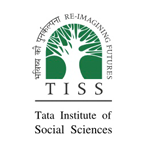Event Highlights: Private Sector Actors and Approaches in Education
Tuesday 07 May 2024
18:30-20:00 CEST
Hybrid (Webex & Auditorium A2, Maison de la Paix, Geneva, Switzerland)
Event Highlights: Private Sector Actors and Approaches in Education
On 7 May 2024, at the Geneva Graduate Institute, NORRAG hosted a hybrid panel on Private Sector Approaches and Actors in Education. Moderated by Chanwoong Baek, Assistant Professor at the Geneva Graduate Institute and Academic Director of NORRAG, the panel explored the diverse roles and engagement levels of private sector actors in education. The distinguished panel included Prachi Srivastava, Associate Professor at Western University’s Faculty of Education; Clare Woodcraft, Fellow at Cambridge Judge Business School, University of Cambridge; Emon Nandi, Assistant Professor at the Tata Institute of Social Sciences’ Centre of Excellence in Teacher Education; Marina Dreux Frotté, Research Associate at NORRAG; and Moira V. Faul, Executive Director of NORRAG and Senior Lecturer at the Geneva Graduate Institute. The discussion focused on private sector engagement in education, the challenges of evidence-informed contributions, and strategies for enhancing their impact on equitable and quality education. Nearly 140 participants attended, fostering a dialogue on how private sector engagement can be socially responsible.
The panellists acknowledged the increasing engagement of the private sector in education and stressed the need to examine its impact. They provided perspectives on the growing involvement of non-state, private actors, especially in low- and middle-income countries over the past two decades. Prachi Srivastava discussed her research on low-fee private schooling, a concept she coined, and its significant influence on educational policy. Clare Woodcraft focused on the role of philanthropy in bridging funding gaps and driving innovation in education, emphasising the need for robust research to ground philanthropic efforts. Emon Nandi highlighted the shift in corporate social responsibility (CSR) expectations, particularly in countries like India where CSR is legally mandated. Marina Dreux Frotté discussed the potential benefits and risks of private investments in education through innovative financing mechanisms. Moira V. Faul emphasised the importance of engaging in research and dialogue on public-private partnerships (PPPs) in achieving sustainable development goals (SDGs), particularly SDG 4, given that they play a significant role in the sector.
When discussing barriers to evidence-informed private sector approaches, the panellists highlighted several challenges. Marina Dreux Frotté and Emon Nandi pointed to the lack of transparency and data sharing, with both Moira V. Faul and Marina Dreux Frotté emphasising insufficient dialogue between educational experts and private sector actors. Clare Woodcraft and Prachi Srivastava discussed inadequate funding and incentives for research, with Clare Woodcraft noting the prioritisation of quick, high-profile interventions and Prachi Srivastava stressing the need for public and open data systems. The panellists collectively underscored the complexity of fostering evidence-informed private sector engagement and the need for multifaceted strategies to address these barriers.
The speakers identified several opportunities for improving private sector contributions to education. Emon Nandi suggested that CSR could evolve from short-term interventions to more strategic, long-term engagement. Marina Dreux Frotté and Clare Woodcraft stressed on promoting dialogue and collaboration among researchers, private sector actors, and funders. Marina Dreux Frotté and Prachi Srivastava noted the need to strengthen private sector actors’ understanding of educational considerations. Clare Woodcraft suggested using philanthropic capital as risk capital to innovate in curriculum development and teacher training. Marina Dreux Frotté also underscored the importance of making research findings accessible and usable for private investors.
Prachi Srivastava concluded by reminding the audience of the ideological, political, and value-laden nature of education, particularly in the Global South. She critiqued the tendency to view education as a technical enterprise focused on evidence and solutions, arguing that it should be seen as a complex, political process requiring a critical examination of resource scarcity and the roles of public and private actors.
Following the panel discussion, the audience engaged with the panellists on topics such as accountability, government regulations, expertise gaps, incentives for long-term investment, accessibility of research, and equity. The speakers underscored the need for clear outcomes, transparent reporting, and government regulations to structure private sector contributions. They also stressed dialogue and capacity building to bridge expertise gaps, suggested tax incentives and public recognition to encourage long-term investments, and called for making research findings more accessible while ensuring regulatory frameworks prevent exacerbating inequalities.
The speakers referenced the following resources that the audience may find useful for further reading:
Books:
- Reimagining Philanthropy in the Global South. From Analysis to Action in a Post-COVID World. Edited by Clare Woodcraft, University of Cambridge, Kamal Munir, University of Cambridge, Nitya Mohan Khemka, University of Cambridge.
- Partnerships for Sustainability in Contemporary Global Governance. Pathways to Effectiveness.Edited by Liliana B. Andonova, Moira V. Faul, Dario Piselli.
- Philanthropy in Education: Diverse Perspectives and Global Trends. Edited by Natasha Ridge and Arushi Terway.
- Realizing the Abidjan Principles on the Right to Education: Human Rights, Public Education, and the Role of Private Actors in Education. Edited by Frank Adamson, Sylvain Aubry, Mireille de Koning and Delphine Dorsi.
Read more about The South Also Knows initiative here.
Read more about Innovative Financing for Education here.
Speakers
- Chanwoong Baek, Assistant Professor, International Relations/Political Science, Geneva Graduate Institute and Academic Director, NORRAG – Chair and moderator
- Marina Dreux Frotté, Research Associate, NORRAG
- Moira V. Faul, Executive Director, NORRAG
- Emon Nandi, Assistant Professor, Centre of Excellence in Teacher Education (CETE), Tata Institute of Social Sciences (TISS)
- Prachi Srivastava, Associate Professor, Faculty of Education, Western University
- Clare Woodcraft, Fellow, Cambridge Judge Business School, University of Cambridge
Partners
 Tata Institute of Social Sciences (TISS) – Website
Tata Institute of Social Sciences (TISS) – Website
The Tata Institute of Social Sciences (TISS) was established in 1936. Since its inception, the Vision of the TISS has been to be an institution of excellence in higher education that continually responds to changing social realities through the development and application of knowledge, towards creating a people-centred, ecologically sustainable and just society that promotes and protects dignity, equality, social justice and human rights for all.

Western University’s Faculty of Education – Website
Our collective work at the Faculty of Education aims to positively impact children and youth, families, schools, our communities and alumni. Our work is shaped by our strategic vision: Transforming education. Transforming lives. Western University is recognized for providing an exemplary education and experience for students, and for its research impact. The Faculty of Education is proud to contribute to this legacy. We know we are making a difference by the way in which our research is valued and the demand for our programs and our graduates.

